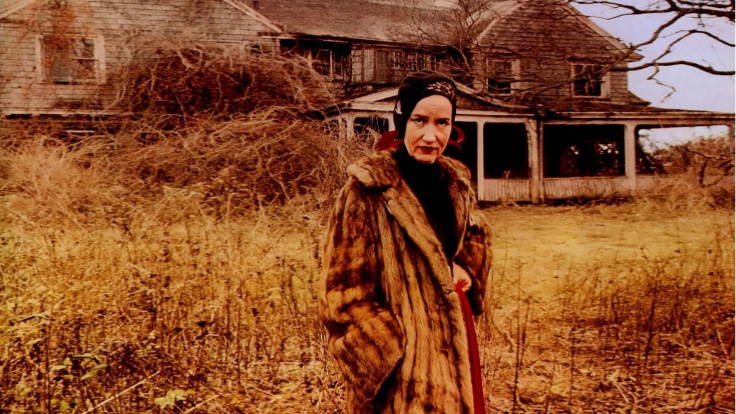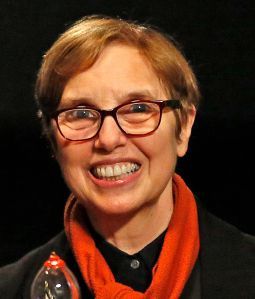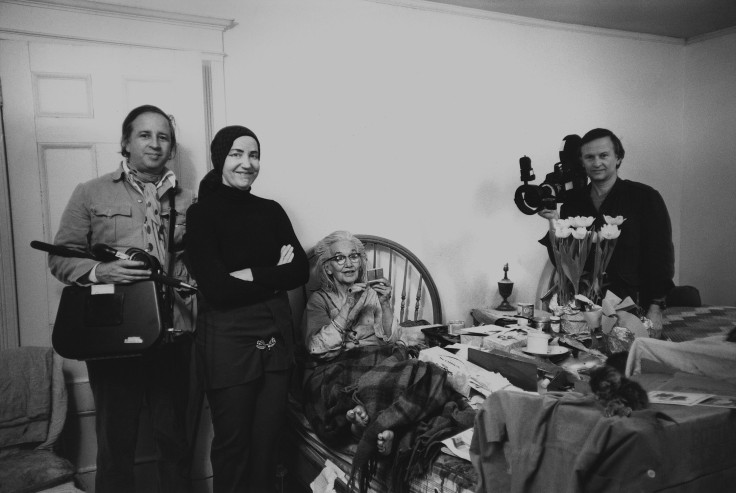On 'Grey Gardens,' Albert Maysles And Editing One Of The Greatest Documentaries Ever Made: Interview, Muffie Meyer

In the early 1970s, the documentary legends Albert and David Maysles ("Salesman," "Gimme Shelter") were approached by Jacqueline Kennedy Onassis' sister Lee Radziwill to film a documentary about her childhood in the Hamptons. Around the same time, Radziwill received word that her aunt and first cousin -- known as Big Edie and Little Edie -- were being ordered by the Suffolk County Health Department to clean up their filthy, dilapidated and cat-occupied mansion, known as Grey Gardens, in tony East Hampton.
Radziwill introduced the Maysles brothers to her aunt and cousin, Edith Ewing Bouvier Beale and her daughter Edith Bouvier Beale, former society ladies turned eccentric recluses. Fascinated by them, the brothers dropped Radziwell as a subject and, after getting an OK from the Beales, filmed them for five weeks, resulting in the 1975 cult classic "Grey Gardens."
Shot in cinéma vérité or Direct Cinema style, with no voice-over or interview questions, "Grey Gardens" depicts the funny, tragic -- and strangely beautiful -- world of an elderly mother and middle-aged daughter who have turned their backs on high society, and some would say, sanity. When they weren't feeding the raccoons that were destroying their attic or bickering about the past, they were singing show tunes, or in the case of Little Edie, repurposing fabrics and clothes into outlandish outfits. Some critics cried exploitation, but others deemed "Grey Gardens" cinematic poetry and consider it the best documentary ever made. For the record, the Beales loved the film.
With the death of Albert Maysles on Thursday at the age of 88 (his brother David died in 1987), there's only one person directly involved in making the film who is left to talk about it: Peabody Award-winning filmmaker Muffie Meyer ("Liberty! The American Revolution"). Meyer and Ellen Hovde, who now has Alzheimer's disease, were tasked with editing 80 hours of footage taken of the eccentric Edies down to a feature-length hour and a half. So significant was their editing of the footage into a story -- it took two years -- that they both received directing credit for the film.
Meyer talked with International Business Times about working with the Maysles, about Albert's style as a documentarian, and what part gender played -- or didn't play -- in the shooting and editing of the film.

IBTimes: How did you get involved with "Grey Gardens"?
Muffie Meyer: I had cut a few films for the Maysles early on, and I then went away to cut a few feature films and David called.
IBTimes: Would they stay all day with the Beales?
Meyer: Not always, but often. The better part of the day. They filmed over five weeks.
IBTimes: Did you ever meet the Beales?
Meyer: No one but the Maysles ever entered that house while they were filming. Immediately after the filming, [associate producer] Susan Froemke and I – Susan had a house in the Hamptons – the two of us used to ride our bikes over to Grey Gardens and we’d see the Edies and visit them. I can’t remember if it was after Big Edie died, or if she didn’t want to come, but Little Edie would come over for dinner. She even sang at my wedding!
IBTimes: What is the difference between editing a fiction film and a documentary?
Meyer: In a fiction film, you already have a script or road map. Your job is to cut out a scene, shorten it if it's dragging, etc. Cinéma vérité films – none of the ones I’ve worked on have had road maps. And "Grey Gardens" certainly didn’t. I remember at the beginning David thought the story might be whether or not Little Edie would leave home or not leave home. It was very clear to Ellen and me right at the beginning that there was no way she was going to leave home.
IBTimes: As editors, you and Ellen had a huge part in shaping what the film means. You're even both credited as directors. Do you think that as women, you were bringing some kind of insight or sensibility to viewing this mother-daughter relationship that the Maysles might not have had?
Meyer: Everybody brings their own experiences, and two men who weren’t the Maysles might not have even been attracted to that story. I will say that I think that it was critical, because of who Little Edie was and who Big Edie was, that men made that film. Little Edie didn’t flirt with us. The Maysles were very much a third part of this triangle: Big Edie, Little Edie and men. And they sort of stood in for men.
What Ellen and I brought to it: It took two years to edit the film. There was literally no story. Nothing happened. The Edies were the same at the end that they were at the beginning. To be successful, a feature film needs to have a beginning, middle, a climax, and a resolution and an end. And how do you create that structure when nothing happens? We recognized that the most emotionally intense scene is when Little Edie cries. That’s now placed toward the end of the film, which we called "Pink Day" because they were in a pink room. But it still didn’t tell us what the film was about.
In the end, Ellen and I began to feel that what we wanted the audience to take away from it was a sense of what a dependency relationship was. That it takes two to tango. Then, we structure the film, so that in the beginning you feel like Little Edie really had to come home. She was the slightly dependent one. Then, we put in a row the scenes in which Big Edie is calling Little Edie and needs her. Suddenly, you begin to feel, wait a minute. Big Edie needs Little Edie a lot. And then we put the scene with Edie swimming. She’s such a good swimmer. You see this woman who might have been. A strong, capable person.
IBTimes: It’s the first time we really see her outside the house doing something.
Meyer: Yes, so it’s almost shocking in a way.
IBTimes: There’s a lot of attention paid to how eccentric they were – and I’m sure you didn’t miss that. But you were actually seeing the dynamics of their relationship as something people could relate to.
Meyer: The relationship to the Kennedy/Onassis [world], in the early days, that’s what drew some people in. But it’s not what made this film a long-lasting film, and it’s not what interested us.
IBTimes: What would you say to people who argue that the Beales couldn’t have given their informed consent to allow themselves to be filmed, that they were exploited?
Meyer: The people who say that assume that they’re mentally ill -- to me, there’s no way that they were mentally ill. I’m not saying they’re not eccentric, but the fact is that Little Edie, after her mother died, managed perfectly well. She sold the house, she went to live in Canada, she went to live in California, she went to Miami, she hauled cartons of stuff around.
IBTimes: What were the Maysles' cinematic innovations?
Meyer: "Grey Gardens" is very different from "Salesman," "Gimme Shelter," the films about [installation artist] Christo. ... If you’re a good filmmaker, the film dictates what people call a style. David and Albert were very strict cinéma vérité directors. They didn’t believe in voice-over, music – except occasionally at the beginning or end. Not counting if it’s a music film. Other rules: You don’t interfere with the action. You try to be a fly on the wall. Right around the time of "Gimme Shelter" -- maybe it happened before I’m not aware of it -- people began to think about how the filmmakers were there. So [co-director] Charlotte Zwerin is shown in "Gimme Shelter" in the editing room, making decisions and stuff like that. At Grey Gardens, there was no choice. The Maysles wanted to be a fly on the wall, but ...

IBTimes: ... They were often addressed by the Edies.
Meyer: There was no avoiding it.
IBTimes: What made their films distinct from other cinéma vérité filmmakers?
Meyer: Albert didn’t go into the cutting room. He would have been the first to tell you that. He wasn’t interested in structure, or telling the story. A lot of people think shooting is about framing and getting the right thing. To Albert and to me and a lot of people, it’s all about listening. Being a great vérité cameraman is all about listening with the kind of sensitivity that allows you to understand that the person speaking may be the less important person in the conversation. It could be the reaction of the person listening. The only way you know is to go over to that other person, to have intuition, not thinking about "Is this a good angle, am I getting the light nicely on that person?" It’s all about the sensitivity to the situation to be at the right place at the right time.
IBTimes: It’s interesting that you’re talking about a visual medium, but this quality is about a different sense. An emotional sensitivity.
Meyer: It’s an emotional connection to what’s going on.
IBTimes: David was the sound person and Albert was the filmmaker. And they just handed the footage over to you?
Meyer: Yes. David would come into the cutting room -- he wouldn’t during these structuring and trying to figure it out sessions, but he was interested.
IBTimes: How often would they check in on you?
Meyer: Albert, never. David, occasionally. I don’t ever remember Albert ever coming into the editing room.
IBTimes: How did you work with Ellen?
Meyer: We spent about six months cutting scenes. But a lot of times we spent talking -- what’s the film about? I remember there was a full year without vacations structuring, trying to figure out what it was about. When you finish a film, it’s obvious what the film is about. But when you’re in the midst of it? You’re just ... especially a film like "Grey Gardens."
IBTimes: Did you know early on that the film was going to be special?
Meyer: I remember the very first screening that we had for friends, it was like three hours long. And about 45 minutes in or less, they were squirming. And I realized, it’s not working at all. I didn’t lose confidence, but you get a bit thrown.
IBTimes: Did it take a while for the cult fandom to happen?
Meyer: Yeah, that didn’t happen until later. Edie had cult fandom almost immediately, mostly among the gay community. But there were two camps regarding "Grey Gardens": the lovers and the haters. People were very passionate about it.
© Copyright IBTimes 2025. All rights reserved.






















